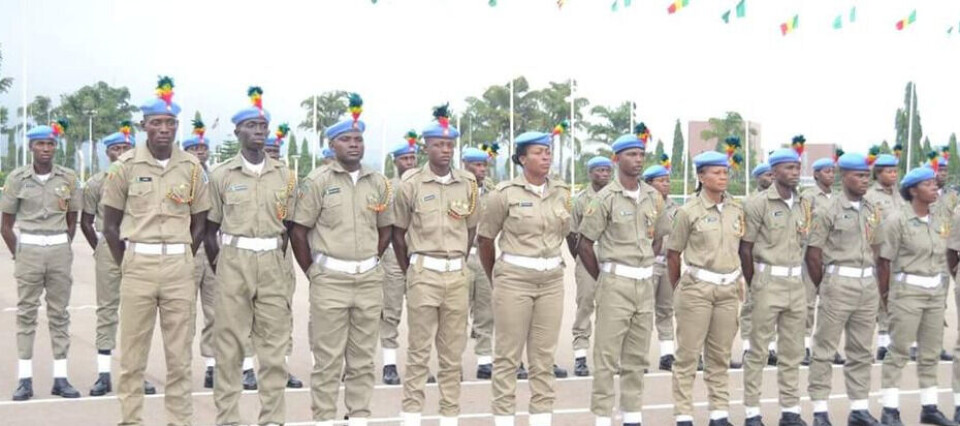Copyright : Re-publication of this article is authorised only in the following circumstances; the writer and Africa Legal are both recognised as the author and the website address www.africa-legal.com and original article link are back linked. Re-publication without both must be preauthorised by contacting editor@africa-legal.com
Legal Backing for Peace Corps in Nigeria

At a time when Nigerian states are ravaged by insecurity, the Senate passed a bill legalising the establishment of the Peace Corps. While a similar bill was previously rejected by the president, the parliament is hopeful of a favourable response this time, reports Alfred Olufemi.
In mid April the upper chamber of the National Assembly passed a bill establishing the Peace Corps of Nigeria (PCN). The bill, sponsored by Senator Ali Ndume, was not only aimed at giving the existing security outfit a legal backing, but also allowing its members to be absorbed into the proposed structure from the start.
The bill was first passed by the eighth Senate in late 2017, but President Muhammadu Buhari withheld his assent to the legislation in 2018. He cited a paucity of funds and duplication of duties of existing security agencies by the proposed corps as his main reasons for rejecting the bill.
“Security concerns regarding the proposed Nigerian Peace Corps being authorised to undertake activities currently being performed by extant security and law enforcement agencies; and financial implications of funding the establishment and operations of the proposed Nigerian Peace Corps, given the scarce financial resources may pose serious challenges to the government,” President Buhari wrote in a 2018 letter addressed to the lawmakers.
An undaunted Ndume reintroduced the bill to the ninth Senate on 17 December 2019. During the second reading of the bill in December 2020, the lawmaker noted that the core mandate of the corps is to “develop, empower, and provide gainful employment for the youth to facilitate peace, volunteerism, community services, neighbourhood watch and nation-building.”
The lawmaker also said all the issues raised by President Buhari for withholding assent to the bill in the eighth Senate had been addressed in the new bill.
Should the president decline to approve the bill for the second time, Section 58 (5) of the 1999 Constitution provides that the bill can be passed by each House by a two-thirds majority. In that case, the bill shall become law and assent of the president shall not be required, but it remains unclear if the legislative arm is ready to exercise such powers.
The Peace Corps existed for more than two decades with over 187 000 members, but it was banned and had its activities proscribed in 2013 over security concerns.
"The Federal Republic of Nigeria official gazette dissolved and proscribed illegal security outfits such as Nigerian Maritime Security Agency (NMSA), Nigerian Merchant Navy Corps (NMNC), the Nigerian Merchant Navy Petroleum Security and Safety (NMNPSS), Peace Corps of Nigeria and other illegal security outfits," said a former police spokesperson, Jimoh Moshood, in 2018.
Public Relations Officer of PCN, Millicent Umoru, said that claim was untrue, because the gazette in question was not made available to the public.
Many Nigerians believe that If the Peace Corps is legalised, thousands will be employed and this will help fight unemployment in the country. The outfit will also help to cushion the effects of a manpower shortage in the Nigerian security architecture.
To join Africa Legal's mailing list please click here
